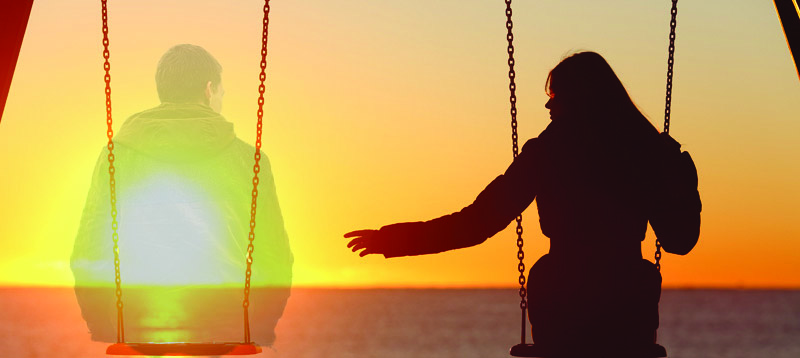The slipping away of a former solid friendship may happen slowly or fast, fading until there’s nothing left or falling apart all at once.
One St. Thomas University student became fast friends with someone in high school, bonding over a shared love of musicals and shows.
“We both had similar family conflicts and I was able to confide in her without judgement. We stayed close for the first year and half of high school, but halfway through Grade 11, I began seeing someone,” wrote the STU student in a Facebook message, preferring to remain anonymous.
And that’s when things fell apart between her and her friend.
“Gone were the days of staying up until 2 a.m. watching How I Met Your Mother and eating chocolate until our stomachs hurt.”
Their friendship fizzled into nothing over the next few years, a common experience many can attest to at some point in their lives.

On Nov. 24, Peter Mallory, professor of sociology at St. Francis Xavier University and a graduate of the sociology program at St. Thomas University, returned to STU to discuss the complexities and contradictions of failed friendships.
Mallory discussed a paper he is co-authoring with Laura Eramian of Dalhousie University exploring the “dark side of friendship.”
“Friendship is an understudied topic in the social sciences,” Mallory said.
Mallory said there has been a “dramatic” rise in single-person households and some senior citizens are looking to live together in communal living with friends as opposed to at senior care centres.
“Some people are turning to friendship as a way to build their personal worlds,” he said.
He said equality, freedom of choice and a non-hierarchical structure make friendship among the most personal of all the relationships in our lives.
“It’s because of these overwhelming positive connotations of friendship that people’s experiences of fraught and broken friendships are rarely talked about and they remain poorly understood,” Mallory said.
He said friendship is a social relation shaped by contradictions and ambivalences and it can feel fragile and fleeting.


Mallory and Eramian wanted to understand how friendships breakdown and what effect that has on people and their social worlds.
So far in their study, they’ve interviewed 25 people, mostly in their thirties and forties from the Halifax area and are still looking to collect more.
He said there are two patterns to the breakdown of friendships he and Eramian have noticed so far. The first is when people are friends, but also roommates, coworkers or lovers.
“Problems can arise when the ethics of one set of friends … stand in conflict with the beliefs and practices around how friends should treat each other,” Mallory said.
The second pattern they noticed was when friendships breakdown because of “fateful moments” like births, deaths and other major life events. Such fateful moments do not always mean the end of a friendship, however.
“These are the moments that can strengthen friendships, when people really realize the importance of friends and other connections in their lives,” he said.
He said many of the people they spoke with were “quite confused and puzzled by the end of their friendships.”
He described the people they spoke with as “deeply, deeply upset” by the breakdown of their friendships.
Friendships often have a formlessness, he said, where they develop slowly overtime and lack clear beginnings and can fade and end without being declared over.
“The boundaries and edges of friendship are fuzzy and unclear,” he said.
He pointed to several contradictions in friends: that friendship is not supposed to take work (but in practice it must) and you should be able to say anything to your friends (but you’re not supposed to talk about the state of your friendship).
“In practice we know that to maintain a friendship does require work, even in the very limited sense that you have to make time for your friends,” he said, adding that friends can choose to stay silent when there’s a problem, leaving the other person confused about what went wrong.
“Often someone might choose to disappear from a friend’s life without explanation because they want to spare the friend’s feelings, but people end up placing great burdens on their former friends when they leave them without explanations about what happened.”

